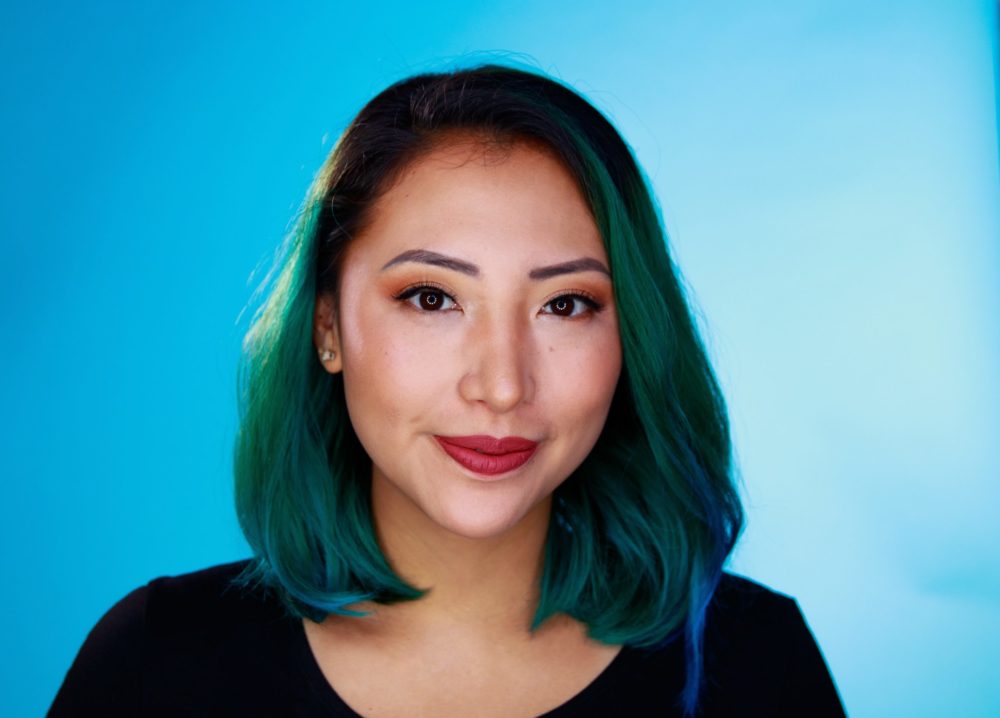Still, she remembers being less than thrilled when her parents wanted her to join a Carnegie Mellon University-affiliated robotics team called Girls of Steel. She wasn’t ready to give up her artistic aspirations, and she didn’t want to participate in a program her sister was a part of.
“I went to all her competitions with a big attitude,” Urbina told Technical.ly. “I was like, ‘I’m gonna be an artist, don’t you dare force me to be here’ — and then my parents forced me to be there.”
Yet once she was there, Urbina fell in love with engineering, and with her artistic aspirations not forgotten, she enjoyed that she could find the things she loved about making art in building machines, too. Now as a mechanical design engineer II at Deeplocal, a Sharpsburg-based creative technology and experience design company, the 2022 RealLIST Engineers honoree for Pittsburgh said the lessons she learned on the team are still serving her well.
Not just in the way of building things, but by giving her a support network she still relies on in the professional world.
“What I got at Girls of Steel was a really strong female support system,” Urbina said. “In the field, if I had any issues, I could always talk to someone about them, and I’m still friends with some of the girls to this day. On the team, you’re able to learn while working alongside your friends, and have tough conversations with them. I learned a lot of the things that people initially learned at the entry level of their position, in high school.”
I found a way to pursue art using creativity to think of an out-of-the-box solution.
She also learned early that criticism about one’s work or ideas didn’t constitute a personal attack. Later, studying mechanical engineering at the Illinois Institute of Technology, she’d realize that her love of art and technology could coexist. At Deeplocal, she’s done everything ranging from contributing to mechanical design exhibits for well-known companies like Nike to designing power-producing machines.
“I found a way to pursue art within that area with designing and using creativity to think of an out-of-the-box solution so that it really fulfills that creative outlet that I was looking at before,” Urbina said.
Looking back now, Urbina said she does wish there’d been more of an emphasis on how to deal with the STEM gender imbalance during her education. Although women make up half the people seeking degrees in science and engineering as of 2022, the field remains disproportionately male. Urbina recalls many college classes where she was one of few women, and observes that there’s still a great deal of sexism in the industry.
“There’s still a lot of sexism still built into the curriculum, into the career, and into the workforce,” Urbina said. “I’m lucky now to be working with other people in hardware that are female, but that wasn’t what it was a couple years ago.”
She appreciates being able to share experiences with her former Girls of Steel colleagues. Still, she believes that preparing women and girls for the sexism they could face in the field, should they choose to pursue it as adults, and offering support networks should be a part of STEM education programs.
What advice would she give to budding technologists? In a world where 80-hour work weeks aren’t just normalized but celebrated, Urbina said, don’t be afraid to set boundaries.
“At my first [job], I was working 90-plus hours a week, and no one will really tell you to stop working and there’s a lot of problems anywhere you go that need to be fixed,” she said. “[What] I needed to know and I’d tell anyone else who needs to know, is that it isn’t always your job to fix every single thing.”







